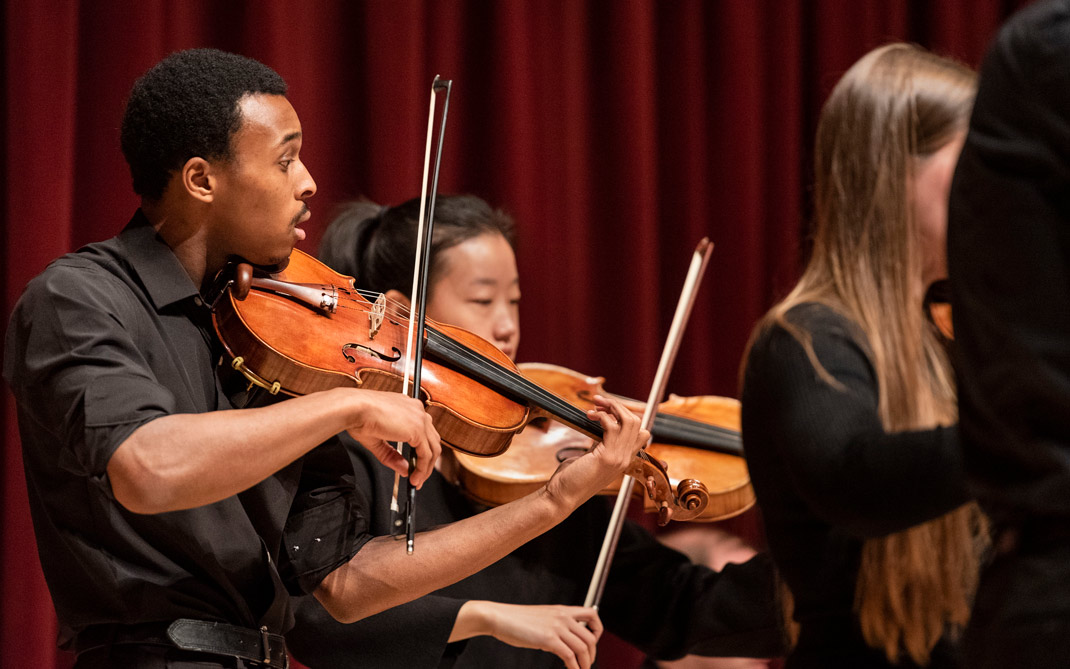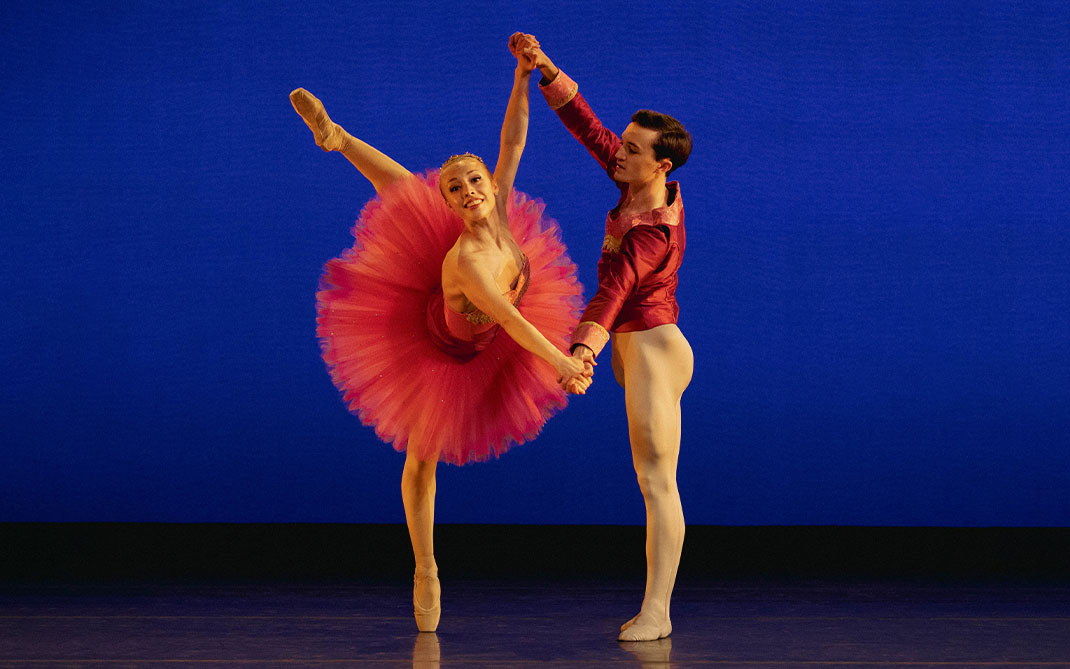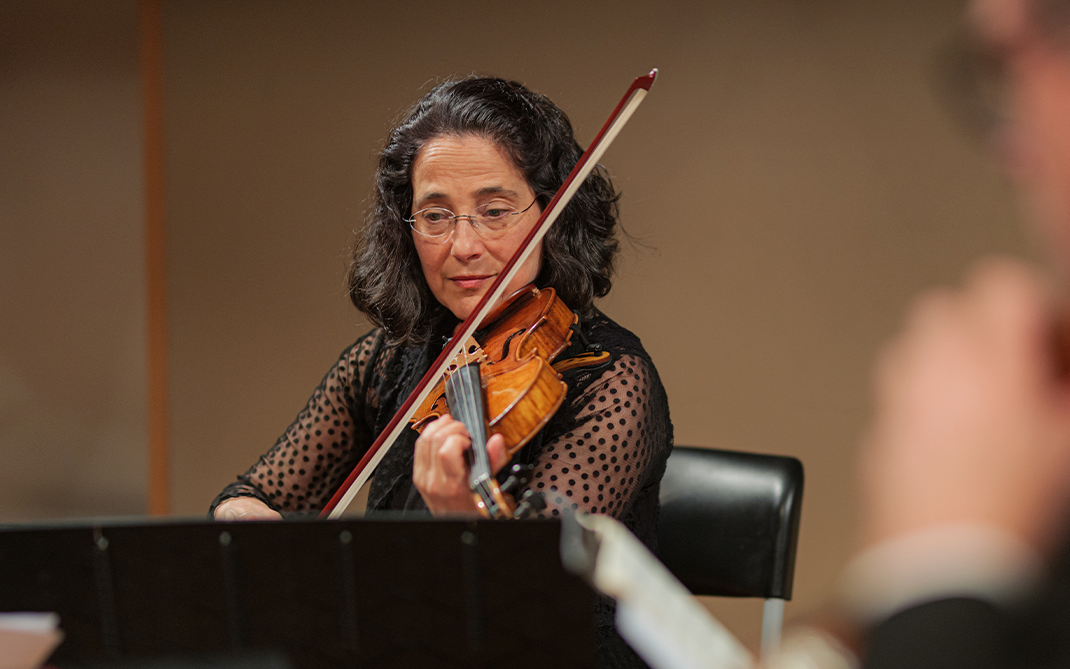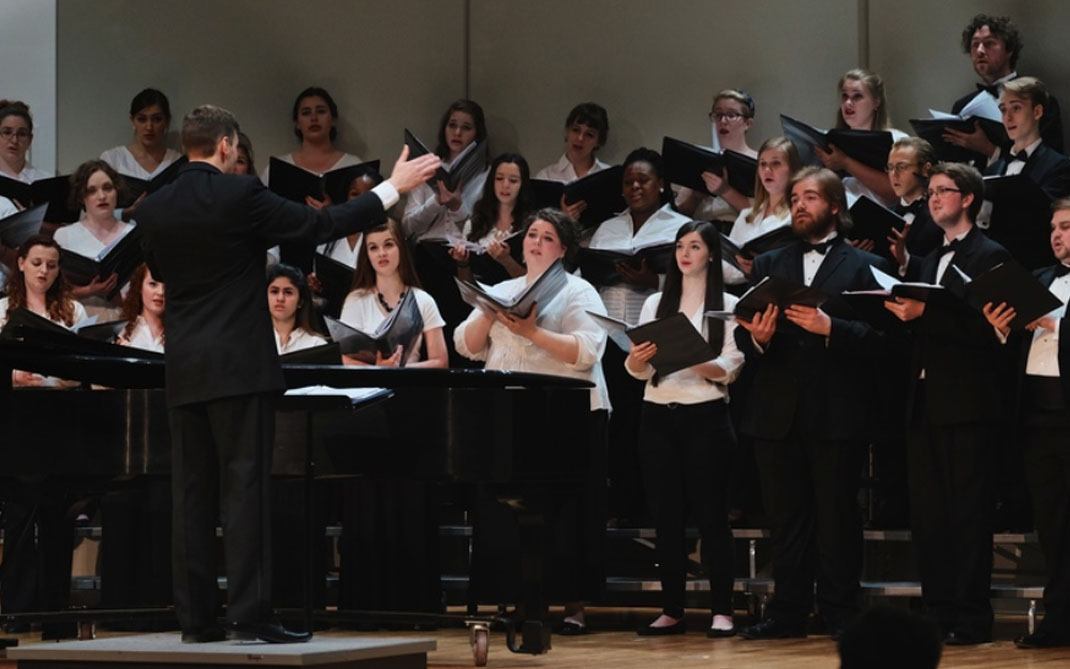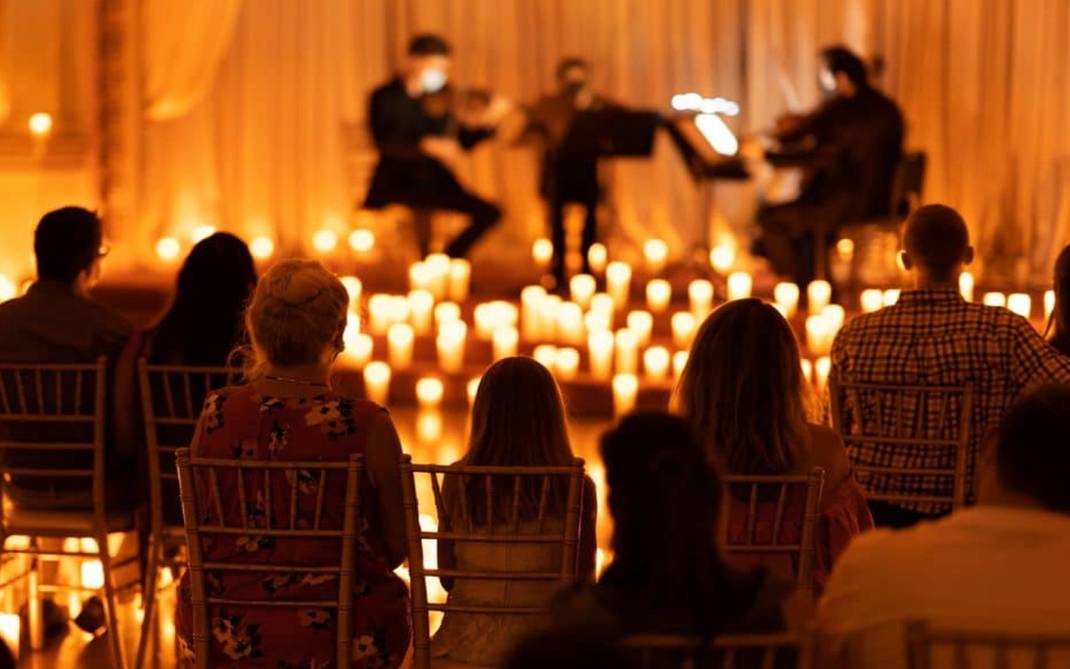Fall 2021 EDIB Progress Report
EDIB progress updates from schools and departments are listed below and categorized under these four themes: Access and Success, Capacity Building, EDIB and Cultural Intelligence, and Support and Advocacy.
DOWNLOAD FALL 2021 EDIB PROGRESS REPORT PDF
Access and Success
Office of Human Resources
- During 2021, UNCSA employed 74 new employees. A total of 58% identify as female and 24% are from underrepresented minorities.
- These hires contributed to a year-over-year (YOY) growth from 15.7% to 18.9% of Exempt from the Human Resources Act (EHRA) nonfaculty employees from underrepresented minorities. The percentage of female-identifying EHRA nonfaculty employees increased from 53.9% to 56.8% YOY.
- The percentage of EHRA faculty from underrepresented minorities declined from 7% to 5.7% YOY. The percentage of female-identifying EHRA Faculty rose from 37.3% to 39% YOY.
- The percentage of Subject to the Human Resources Act (SHRA) employees from underrepresented minorities increased slightly from 28.8% to 29.5% YOY. The percentage of female-identifying SHRA employees decreased from 50.9% to 48.9% YOY.
Dance
- Faculty voluntarily taught private lessons to students who did not have the financial means to pay for individual lessons but needed additional work in their area of study.
Filmmaking
- Current adjunct faculty are 50% African American women and 25% female artists.
Music
- The Vivaldi Project, an artistic and educational project that cuts to the heart of racial inequality, injustice, and lack of opportunity and exposure to music in our community, was expanded to include Ashley Academy preschool classes. Learn more about the profound impact the initiative has had: Parallel Play: The Vivaldi Project.
Capacity Building
Shared Governance Committees and Provost’s Office
- Stakeholders from Faculty Council, Staff Council and the Student Government Association met over summer and fall 2021 to finalize establishing language for the creation of a new shared governance committee known as EDIB Governance Committee. The committee will officially begin recruiting for individuals to serve in late spring 2022.
EDIB and Cultural Intelligence
Shared Governance Committees
- Anti-Bias Workgroup: An extension of the Studio for Creative Practice (SCP), this workgroup held weekly meetings to examine/challenge pedagogical practices to reveal personal bias and embedded white supremacy in course structure, content and modes of communication. Texts including “Shifting Cultural Power: Case Studies and Questions in Performance” by Hope Mohr were read and discussed.
- Responsive Pedagogy Workgroup: This workgroup held biweekly meetings that explored responsive pedagogy and deconstructing hierarchies in teaching across a broad spectrum of disciplines and institutions. Texts including “Teaching to Transgress” by bell hooks were read and discussed.
Office of the Provost
- The Office of the Executive Vice Chancellor and Provost implemented unconscious bias training for search committees. The three-part series, "Mitigating Unconscious Bias in the Search Process," includes the following workshops: "Preparing to Launch a Search," "Evaluating Candidates," and "Interviewing Candidates." Each session highlighted areas where unconscious bias may manifest during the search process and provides tools and remedies for search committees to implement to account for and manage them. The series will be made available as an ongoing professional development opportunity.
Dance
- Embedding West African technique into the curriculum: Students took class with African dance specialist Wesley Williams up to three times per week.
- Dance History: This class evolved to be discussion-based rather than lecture-based to promote critical thinking and engender compassionate conversation.
Design & Production
- “Exploding the Canon” course: For the third year, faculty members Kris Julio and Molly McCarter offered this course as an arts elective for D&P students. The course explores the canon of works from Black, Indigenous and People of Color (BIPOC) and LGTBQ playwrights.
- Wig and Makeup Design introduced new requirements for in-class projects. Wig Tech IIA, a fully hand-tied wig project, is now done only in textured hair and now also has a cornrow style requirement in addition to a natural style. To ensure students can practice all hair preps and styles regardless of model availability, 40 textured hair mannequin heads have been purchased. The Wig Tech IIIA class now requires the 10 styles to include a variety of hair textures. The Intro to Makeup IA class now requires students to include a variety of skin tones in their class makeup applications.
Music
- Sound Scapes is a new course that explores intersections and interplays between sound/music and the environment in a global sociopolitical context.
High School
- Added a new course as part of the Citizen Artist graduation requirement: African Diaspora Studies offered by Spanish teacher Tamara Akinbo.
- All faculty and staff participated in a two-day strategic planning and EDIB workshop with Chris Chopyak and Lisa Mount from Artistic Logistics and Keryl McCord of Equity Quotient.
Support and Advocacy
Dance
- Featured a repertory of diverse choreographers including Robert Battle, Ming-Lung Yang, Ashley Lindsey and Yoshito Sakuraba.
- Engaged diverse guests including teaching artists Anthony Lee Bryant, Wesley Williams, Darrell Grand Moultrie, Christina Johnson and Jose Velasquez. Engaged lecture/discussion artists including Hope Mohr and Karla Quintero, co-directors (with Cherie Hill) of the Bridge Project; Annie Hanauer; Susanna Recchia; Chris Yon; Okwui Okpokwasili; Jimena Paz; Jawole Willa Jo Zollar; Ariel Freedman; Advanced Beginner Group - David Neumann; Marcella Murray; Tei Blow; Ralph Lemon; Maria Hassabi; and Miguel Gutierrez.
- Acknowledged the exceptional EDIB work of 2017 alum Saki Morimoto by nominating her for the 2022 Alumni Artpreneur of the Year Award.
- Nonbinary casting: Introduced gender-neutral casting for one of the most recognizable and favored roles in “The Nutcracker” — Drosselmeyer.
Design & Production
- Wig and Makeup Design brought in guest artists of color to share their expertise and experiences; these included Destinee Steele, Heather Hawkins, Rosa Malikia Johnson and Typhany Morrison-Brooks.
Filmmaking
- Featured a collective of BIPOC artists – including Mexican filmmaker Ilana Coleman, Latina documentarian Mireya Martinez, African American filmmaker Kwesi Johnson, and Brazilian filmmaker Stephanie Delazeri – who led a robust slate of workshops related to their variety of life experiences.
- Created a Black Cinematheque screening series dedicated to films made by, and content dedicated to, Black filmmakers. The cinematheque is run by students of color.
- Supported the student-run “Female Filmmakers Group” dedicated to exploring the issues of sexual discrimination and adverse conditions present in the film industry.
Music
- The majority of guest artists engaged by the School of Music during fall 2021 were BIPOC, female-identifying, and LGBTQIA+ musicians and composers. These included the following: Louise Toppin, a noted performer, scholar, and professor who specializes in the concert repertoire of African American composers; singer, violinist, teacher and transgender activist Tona Brown, who spoke with UNCSA Music students about issues specific to opera and voice regarding gender identity, the Fach system and transgender singers, and offensive characterizations of nonheterosexual relationships in opera and musical theater; Sphinx Virtuosi, a chamber orchestra composed of some of the nation’s top Black and Latinx classical soloists, who returned to UNCSA in September to perform Tracing Visions, a program that set out to challenge and evolve the classical canon by illuminating a new pathway for listening, sharing and expression; and conductor Thomas Wilkins, who worked with UNCSA Music students for a week in November and performed Mahler's Fifth Symphony with the student orchestra. Wilkins is principal conductor of the Hollywood Bowl Orchestra and the Boston Symphony Orchestra’s artistic adviser for education and community engagement. He has conducted the New York Philharmonic, Los Angeles Philharmonic, Chicago Symphony Orchestra, Cincinnati Symphony Orchestra, and the National Symphony Orchestra (Washington, D.C.).
Liberal Arts
- Invited Michael Rohd to discuss UNCSA’s commitment to civic imagination and to find opportunities for growth in living our value systems in the way we communicate and collaborate across campus and with the larger community. He will be returning in the spring to continue the work.
High School
- Continued with the Citizen Artist (formerly Social Justice) Lecture Series by featuring Wake Forest University professor Brittany Battle, co-founder of the Triad Abolition Project; Sara Hines, co-founder of Unity Wellness Center; and civil rights activist Yvette Boulware.
October 25, 2023
